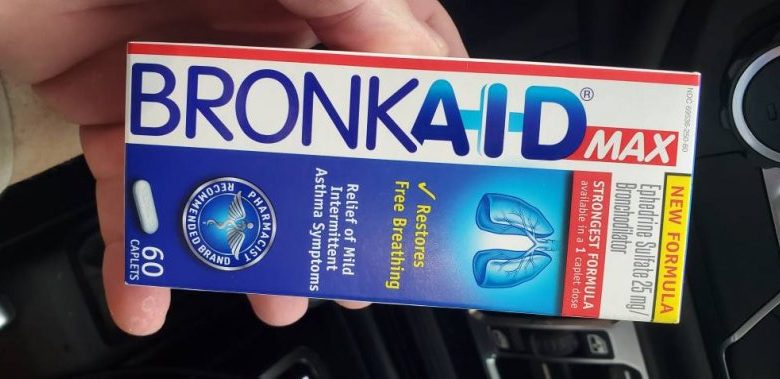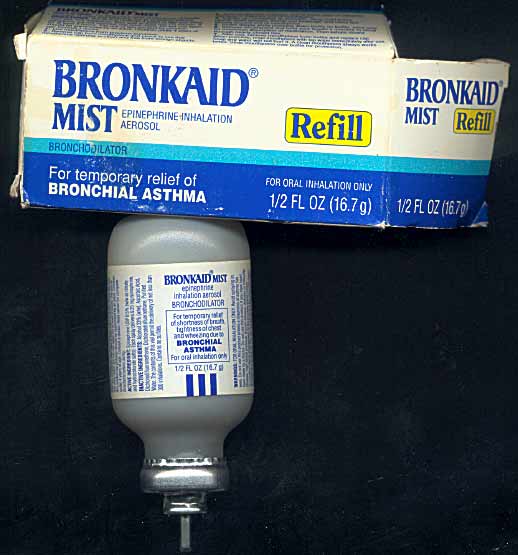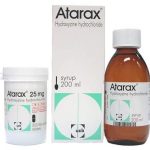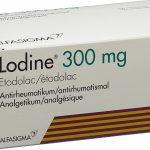Why Was Bronkaid Discontinued?

What Is Bronkaid?
Bronkaid is an ephedrine sulfate-based medication designed to provide temporary asthma relief, and can help treat difficulty breathing and difficulty expelling mucus, and should only be used by patients that have been officially diagnosed with asthma by their doctor. Symptoms treated by Bronkaid include wheezing, tightness of the chest, shortness of breath, and chest congestion.
Asthma is a chronic disease that causes inflammation of air passageways, making it difficult to breathe. Asthma is triggered by things like pollen, extreme weather changes, dust mites, exercise, chemicals, smoke, and stress, and each person’s triggers are different. People with asthma must learn to identify their triggers and avoid them where possible. Symptoms of asthma include coughing, shortness of breath, wheezing, and chest tightness, and it can cause a medical emergency.
Bronkaid is availsble as
- Capsule
- Liquid Filled Capsule
- Long Acting Capsule
- Tablet
- Long Acting Tablet
- Coated Tablet
- Liquid
- Chewable Tablet
How Does Bronkaid Work?
Bronkaid contains ephedrine sulfate as the active ingredient. Ephedrine sulfate is a bronchodilator and decongestant that causes a narrowing of the blood vessels, allowing a person experiencing asthma symptoms to breathe more easily. Bronchodilators work on specific receptors in the body to cause the bronchial smooth muscle to relax, which results in freer breathing and relief from the chest tightness and wheezing associated with asthma.
However, Bronkaid does not treat the root cause of asthma and it cannot prevent an asthma attack, but it does help to improve symptoms once asthma symptoms appear.

Why was Bronkaid discontinued?
Bronkaid was discontinued due to safety concerns associated with its main active ingredient, ephedrine sulfate. In 2004, the U.S. Food and Drug Administration (FDA) banned the sale of ephedrine-containing dietary supplements due to concerns about their safety. This ban was prompted by reports of serious adverse events associated with the use of ephedrine, including heart attacks, seizures, strokes, and even death.
While Bronkaid was not a dietary supplement, it contained ephedrine sulfate, which is also a stimulant. In 2011, the FDA announced that all products containing ephedrine sulfate would be removed from the market due to safety concerns. This included Bronkaid and other products that contained ephedrine sulfate as an active ingredient.
Bronkaid Mist, a metered-dose inhaler that is intended to provide temporary relief for symptoms of mild, intermittent asthma has also been discontinued in the U.S because the propellants used in the inhaler, chlorofluorocarbons (CFCs), which are harmful to the environment and are no longer permitted.
Other Bronkaid products have also been reclassified after a new federal law made ephedrine the active ingredient in the medication a Schedule V controlled substance. This action was taken to limit its availability and to help stop the production of methamphetamine. Illicitly manufactured meth is usually made by combining ephedrine or pseudoephedrine with other chemicals that are often poisonous or highly flammable.
In February 2004, the U.S. Food and Drug Administration (FDA) also banned supplements containing ephedrine alkaloids due to significant cardiovascular risk. The agent has repeatedly been linked to adverse and sometimes fatal outcomes despite compliance with recommended dosages. The FDA took the action after receiving more than 18,000 adverse-event reports.
Bronkaid side effects
In general, other side effects associated with the use of Bronkaid are considered mild and usually do not require medical attention. Common and generally mild side effects of Bronkaid include:
• Difficulty sleeping
• Nervousness
Infrequent and generally mild side effects of Bronkaid include:
• Decreased appetite
• Difficult or painful urination
• Dizziness
• Dry mouth
• Excessive sweating
• Fast heartbeat
• Generalized weakness
• Headache
• High blood pressure
• Loss of skin color
• Muscle tremors
• Nausea
• Throat dryness
• Vomiting
Rare and generally mild side effects of Bronkaid include:
• Anxious feelings
• Irritation of the stomach or intestines
• Temporary redness of face or neck
Rare and potentially serious side effects of Bronkaid are unlikely but have been known to occur. These include:
• A heart attack
• A stroke
• Abnormal heart rhythm
• Chest pain
• Mental problems
• Paradoxical bronchospasm
• Seizures
Patients should stop the use of Bronkaid and seek medical help if asthma symptoms worsen, you have difficulty sleeping, have tremors, nervousness, or seizure, experience a rapid heartbeat, or you have a cough with phlegm lasting longer than seven days, comes back, or occurs in conjunction with a fever, rash, persistent headache or any allergic reaction.
Bronkaid may cause other side effects. Call your doctor if you have any unusual problems while you are taking this medication.
Bronkaid alternatives
If you were using Bronkaid for the relief of asthma symptoms, there are several alternatives available that you can discuss with your healthcare provider. Some of these alternatives include:
1. Albuterol: Albuterol is a fast-acting bronchodilator that is commonly used to treat asthma. It works by relaxing the muscles in the airways, making it easier to breathe. It comes in various forms such as inhalers, nebulizers, and tablets.
2. Levalbuterol: Levalbuterol is another bronchodilator that works similarly to albuterol but may be better tolerated by some individuals. It is available as an inhaler and nebulizer solution.
3. Ipratropium: Ipratropium is an anticholinergic medication that helps to relax the airways by blocking the action of acetylcholine, a chemical that causes the airway muscles to constrict. It is available as an inhaler and nebulizer solution.
4. Montelukast: Montelukast is a leukotriene modifier that works by blocking the action of leukotrienes, which are substances that can cause inflammation and swelling in the airways. It is available as a tablet.
5. Inhaled corticosteroids: Inhaled corticosteroids are a type of medication that can help reduce inflammation in the airways. They are often used in combination with other medications to treat asthma.
It is important to consult with your healthcare provider to determine which medication is most appropriate for your individual needs and medical history.





